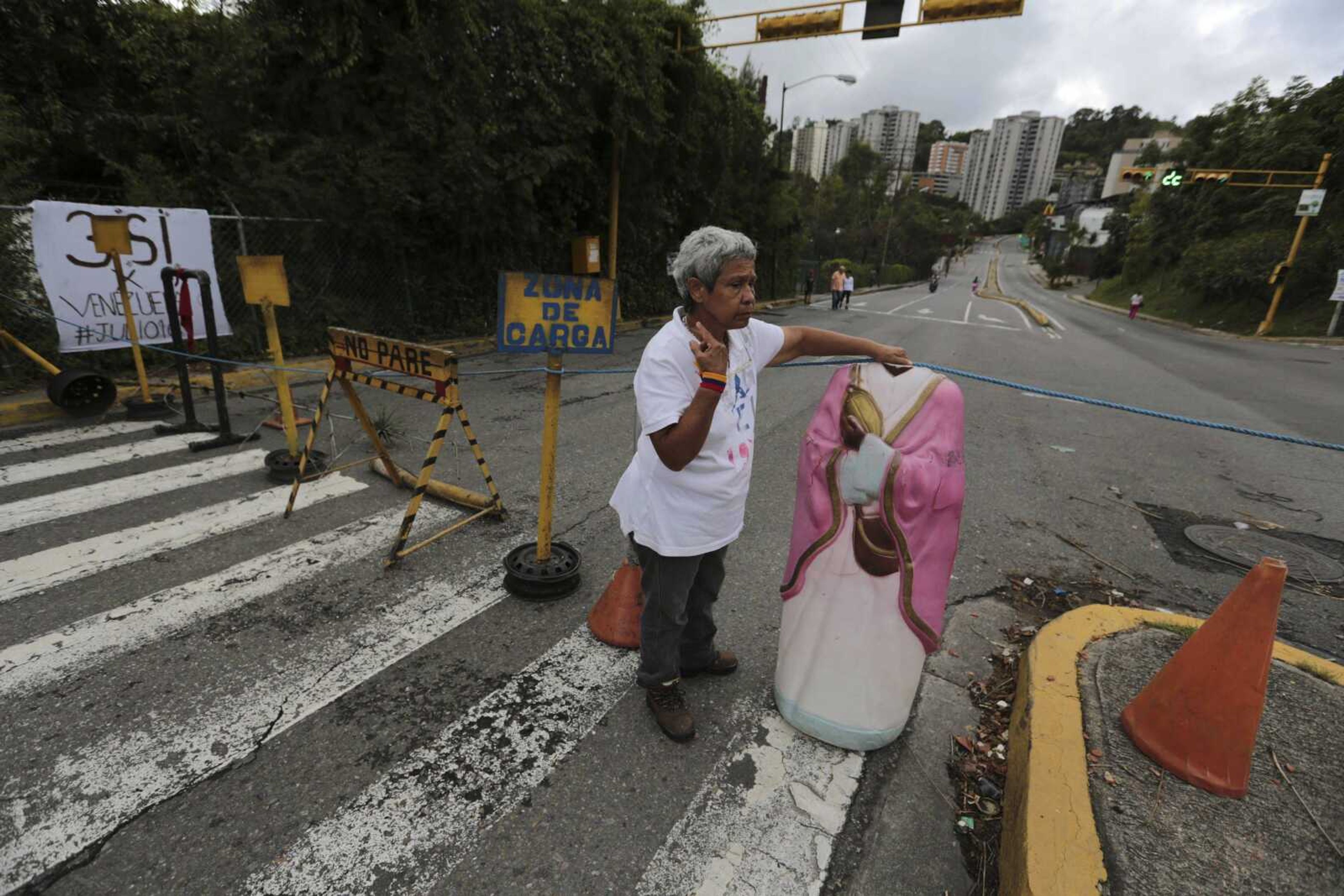Venezuela strike erupts into sporadic violence
CARACAS, Venezuela -- A nationwide strike against plans to rewrite the constitution shut down much of Venezuelan's capital Thursday before erupting into sporadic violence when protesters clashed with riot police and burned a post office near the headquarters of the main state-run broadcaster...
CARACAS, Venezuela -- A nationwide strike against plans to rewrite the constitution shut down much of Venezuelan's capital Thursday before erupting into sporadic violence when protesters clashed with riot police and burned a post office near the headquarters of the main state-run broadcaster.
Wealthier, pro-opposition neighborhoods of eastern Caracas were shuttered and silent until early afternoon, when improvised blockades left them almost entirely cut off from the rest of the city.
Groups of masked young men set fire to a handful of blockades and hurled stones at riot police, who fired back tear gas.
A public transport strike appeared to have halted nearly all bus traffic, and thousands of private businesses defied government demands to stay open as opponents of President Nicolas Maduro called the first major national strike since a 2002 stoppage that failed to topple Maduro's predecessor Hugo Chavez.
Maduro said on national television he'll press ahead with plans to rewrite the nation's constitution and said hundreds of Venezuela's largest companies are functioning "at 100 percent" despite the strike. The claim could not be confirmed.
In neighborhoods of western Caracas traditionally loyal to the ruling party, some stores were closed, but bakeries, fruit stands and other shops were open, and hundreds of people were in the streets, although foot and vehicle traffic were about half of what they would be on a normal weekday.
In the rest of the city, residents commented the streets were emptier than on a typical Sunday.
The 24-hour strike was meant as an expression of national disapproval of Maduro's plan to convene a constitutional assembly that would reshape the Venezuelan system to consolidate the ruling party's power over the few institutions that remain outside its control. The opposition is boycotting a July 30 election to select members of the assembly.
"Definitively, we need a change," said teacher Katherina Alvarez. "The main objective is for people to see how dissatisfied people are."
The country's largest business group, Fedecamaras, cautiously has avoided full endorsement of the strike, but its members have told employees they won't be punished for coming to work. Fedecamaras played a central role in the monthslong 2002-2003 strike Chavez's political rivals and opponents in Venezuela's private business sector orchestrated in an attempt to topple him.
Chavez emerged from the strike and exerted control over the private sector with years of expropriations, strict regulations and imports bought with oil money and meant to replace local production.
Connect with the Southeast Missourian Newsroom:
For corrections to this story or other insights for the editor, click here. To submit a letter to the editor, click here. To learn about the Southeast Missourian’s AI Policy, click here.









